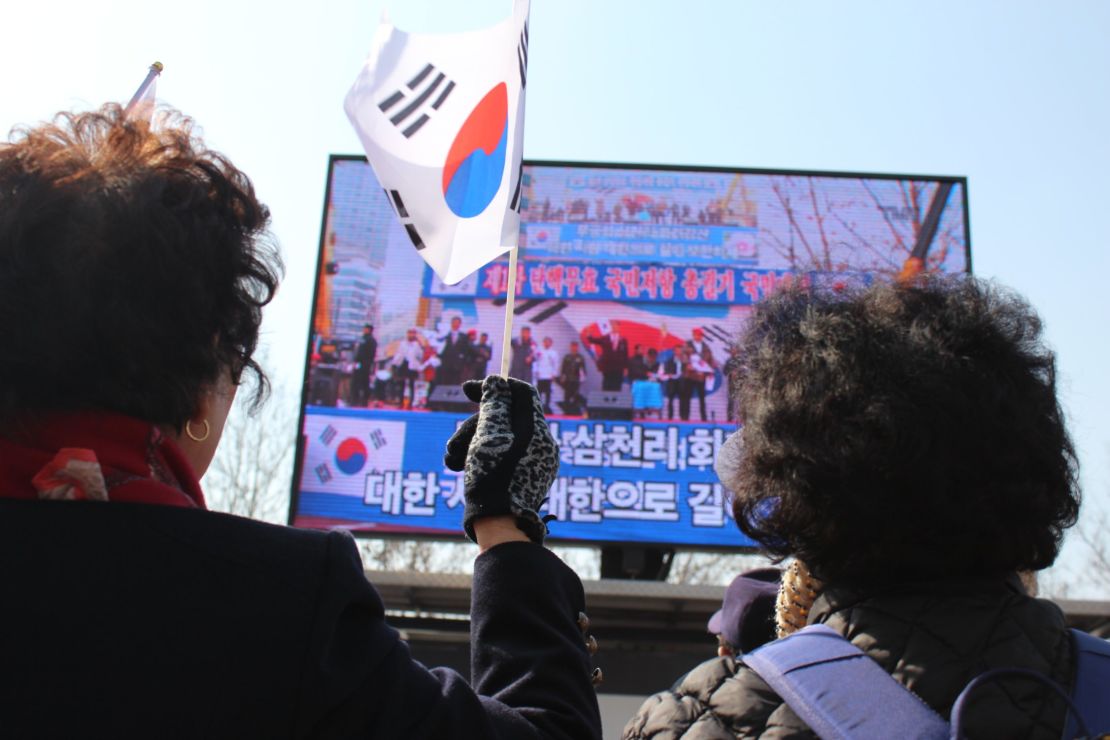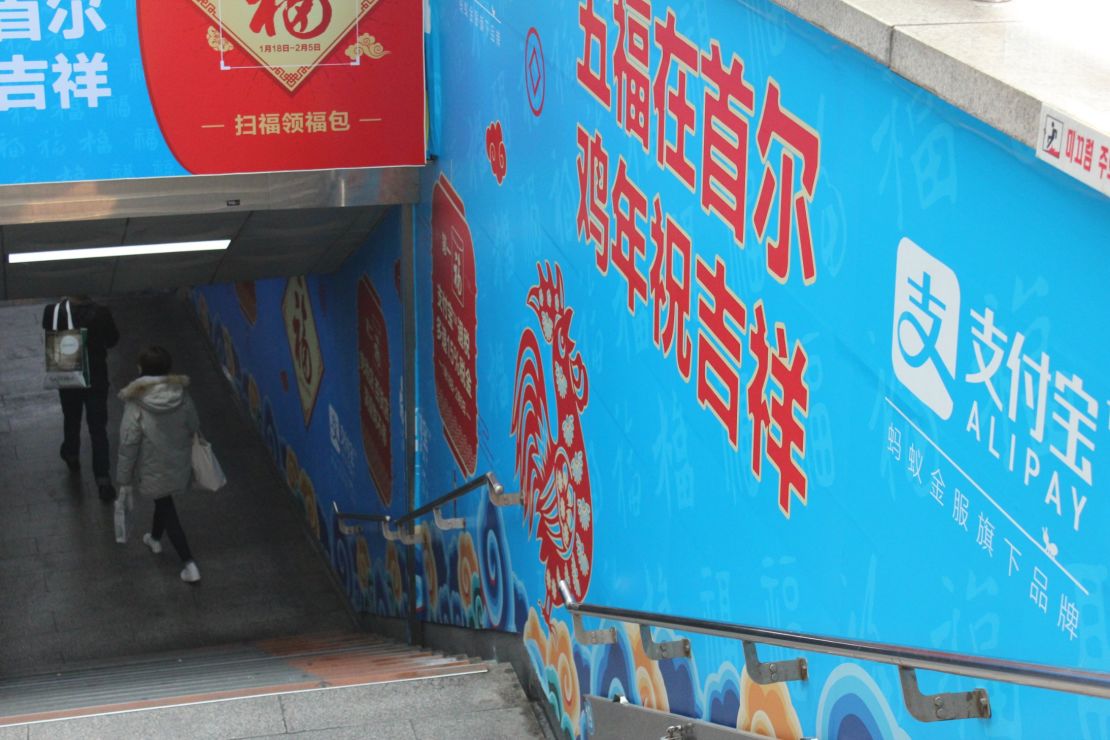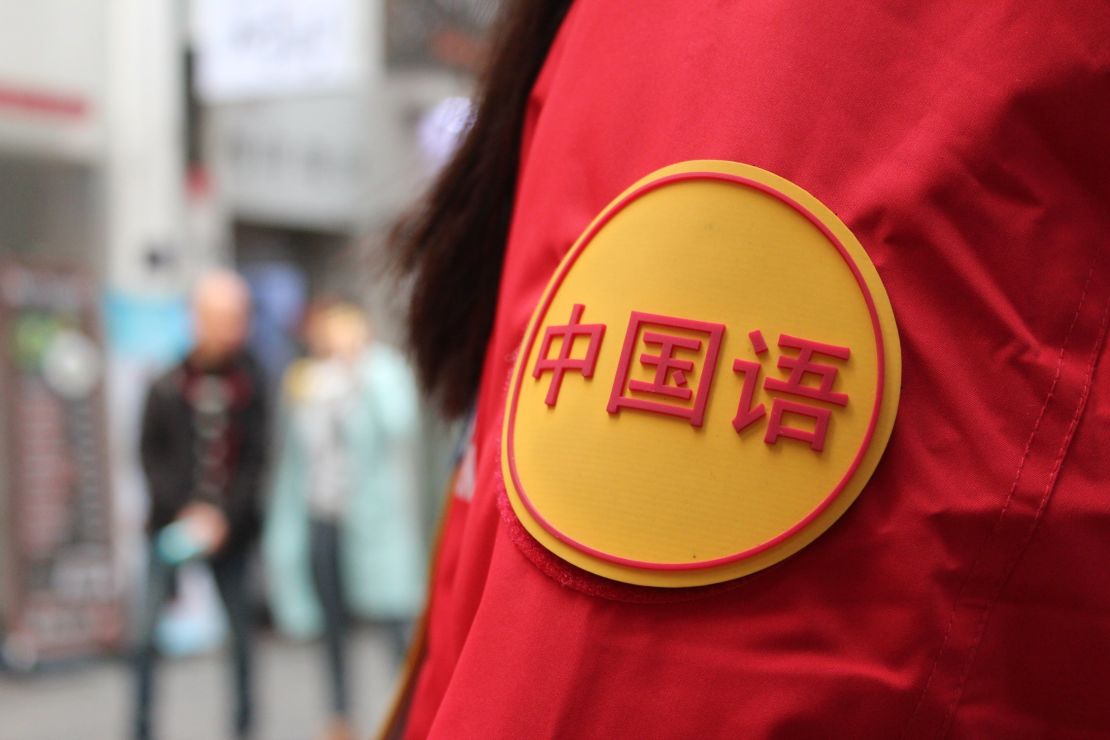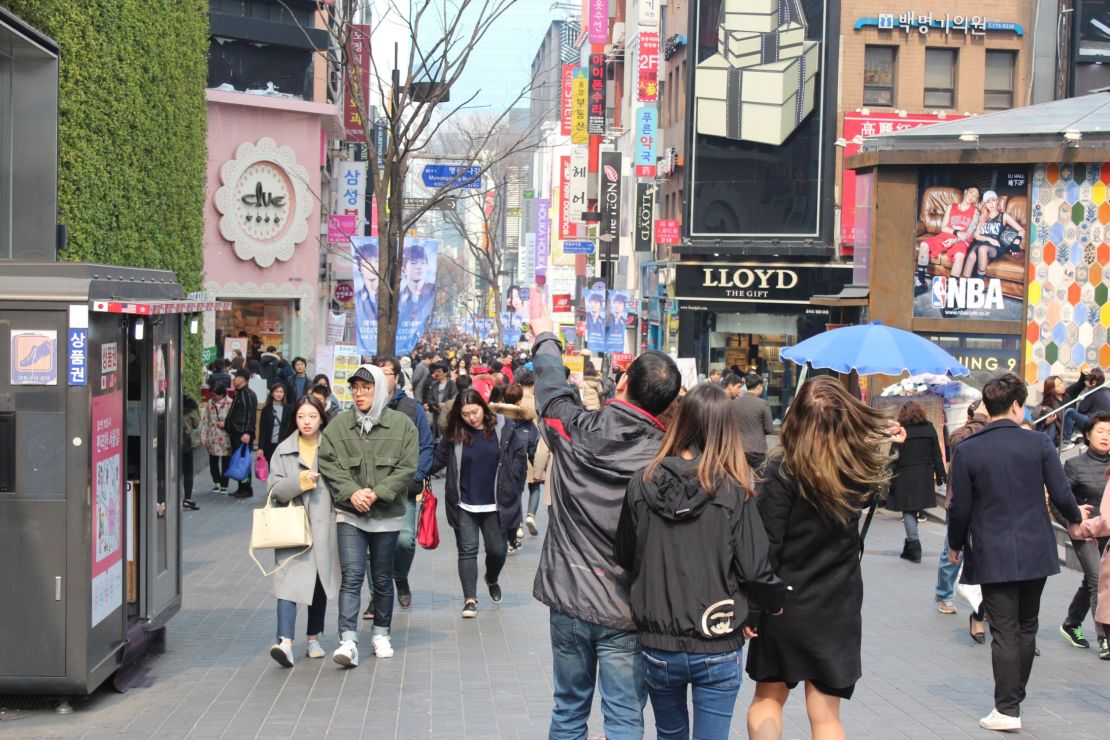Story highlights
China has vehemently opposed the deployment of the THAAD missile defense system
NEW: Conservative lawmaker suggests US should go further and deploy nuclear weapons
The dramatic downfall of President Park Geun-hye comes at a time of heightened regional tension over South Korea’s deployment of a controversial US missile defense system.
A court upheld Park’s impeachment Friday, removing the country’s first female President from office and clearing the way for new elections within 60 days.
One of the key issues in those elections will be the Terminal High Altitude Area Defense (THAAD) system, the first parts of which arrived in South Korea last week under an agreement between the US and Park’s government. The system could be used to shoot down ballistic missiles aimed at South Korea.
While the US and South Korea argue that THAAD is necessary in the face of continued North Korean provocation, its deployment has harmed relations between Seoul and Beijing, which has always strenuously objected to any rollout of missile defense systems in its backyard.
With Park now out of the picture, questions have again been raised over the future of THAAD ahead of a visit by US Secretary of State Rex Tillerson to the region this week.
“We are saddened to see that the China-(Korea) relationship is in difficulty,” Chinese Foreign Ministry spokesman Geng Shuang said Friday after the verdict against Park.
He called on Seoul to “cease the deployment and remove the obstacles for the sound development of China-(Korea) relations.”
Security concerns
With so much at question in the upcoming elections – parties have yet to even hold primaries to decide their candidates – the fate of THAAD, as with many pressing political issues, is up in the air.
A spokesman for Park’s Liberty Korea Party told CNN it would be announcing its candidate on March 31.
Many of the protesters who spent weeks on the street calling for Park’s removal are also opposed to THAAD. At a rally celebrating the impeachment ruling Saturday, balloons could be seen reading “No THAAD! Yes peace!”
At least one potential candidate in the upcoming election has called for the issue to be reassessed.
“If South Korea decides to revoke the THAAD decision, this will set a terrible precedent, which will cause China to believe that it can use its economic influence over South Korea to control Seoul’s strategic agenda,” Benjamin Lee, an analyst for the Carnegie Endowment for International Peace, wrote this week.

‘Dangerous situation’
Kim Young-woo, a conservative lawmaker and chairman of the Korean National Assembly’s Defense Commission, told CNN that “the whole Korean peninsula is facing a very dangerous situation now.”
He said that if a future government attempted to renegotiate the THAAD deployment “our alliance (with the US) could be weakened.”
In response to pressure from China, Kim said he would be interested in hearing whether or not the US would be willing to deploy mobile tactical nuclear weapons in South Korea, adding that he would raise the subject in meetings expected to take place with top American military leaders in Washington later this week.
Seoul has maintained the policy of a “nuclear-free Korean Peninsula” since 1991, when then-President Roh Tae-woo declared that South Korea would not “manufacture, possess, store, deploy, or use nuclear weapons.”
At a rally protesting Park’s impeachment Saturday, concern over the future of THAAD was high.
“The next government must support the security relationship with our friends in the US,” protester Kim Jung-hyun, in his 40s, said. “We support THAAD deployment because right now North Korea and China are pointing their missiles at us.”
Jason Choi, 36, said he was worried a potential future left-wing government would be too “China friendly.”

Economic impact
China’s displeasure over THAAD has been costly for some South Korean companies.
Since South Korean conglomerate Lotte Group agreed to hand over a golf course to the South Korean government to house the THAAD system, at least 23 Lotte Mart stores across China have been shut down by authorities, the company said.
Seoul has accused Beijing of ordering travel agencies to stop selling packages to visit the country. Of the 17 million people who visited South Korea last year, eight million were Chinese, according to data from the Korea Tourism Organization.
According to the Yonhap news agency, more than 70% of duty free shops are dependent on Chinese tourists for the business. A representative for a mid-sized hotel in Myeongdong, a busy shopping district, told CNN that they had received multiple cancellations from Chinese tourists.

In an underground shopping market popular with tourists in central Seoul, few Chinese visitors were visible, and locals agreed that numbers had fallen, even if they were split over the actual effectiveness of the alleged ban.
Hans Kwon, a shopkeeper and member of a union representing businesses in the underground market, said that the numbers of Chinese tourists “decreased dramatically in a short period of time.”
He welcomed the drop however, complaining that Chinese shoppers always wanted to haggle over prices.
“It is true many of the shop owners around here saw a drop in sales but most of them are thinking ‘I’d rather earn less’,” he said.
“Business is business and government is government so if you combine them together, nothing gets solved.”
Kwon said he was unwilling to sacrifice national security for business, and would vote for “whoever has a hard line policy towards North Korea.”

There were signs as well that Chinese themselves were tired of being used as a diplomatic bargaining chip by their government. A poem shared widely on Chinese social media complains about the pressure to criticize other countries.
“On Monday, I oppose Korea; on Tuesday, Japan; on Wednesday, it’s the Americans; on Thursday I oppose the independence of Taiwan; Friday, that of Hong Kong,” it reads.
“My life is so wonderful and rich; of everything else, I have no time to think or bitch.”
CNN’s Ivan Watson, Stella Ko and Nanlin Fang and journalist Lauren Suk and Taehoon Lee contributed reporting.


















